- Home
- Rose Tremain
The Gustav Sonata Page 7
The Gustav Sonata Read online
Page 7
In Emilie’s broom cupboard, he found a folding metal pushchair in which she used to wheel him about when he was small. He manoeuvred this into the bathroom and tugged the sheets out of the bath and dumped them in the chair and wheeled the chair to the elevator. All the way along the tiled floor, the sheets left little drips and puddles.
When he got to the basement, it was dark. The light switch was too high for him to reach. He stood in the blackness, smelling the dank of the place and the acrid smell of the sheets. He knew that, if it hadn’t been for Ludwig, he would have gone and knocked on Frau Krams’s door and asked for her help, but he was afraid to do this.
He stood there a long time. Then he became worried that Ludwig might come and close the cellar door, with both of them locked inside. He didn’t know what more to do except to wheel the sheets near to the washing machine and leave them there till morning.
Now, he was making a barricade behind the apartment door.
He used the Biedermeier chair, slammed up against a wooden shelf that Emilie had taken out of her wardrobe. Then, he carried all the pots and pans, one by one, from the kitchen to the door and heaped them onto and round the chair. He knew the door might still be pushed open, but at least he would hear the pans clinking and crashing, if Ludwig tried to get in. Then, he would run to the lavatory and lock himself inside.
By the time the barricade was finished, Gustav felt so tired that he thought he might fall over. He wanted to run a bath, to wash himself clean of all that had happened to him in the last twenty-four hours, but he was afraid that if he did this, he might slip under the water and drown. So he just took off his clothes and crawled into his bed. He said a prayer for Emilie and fell asleep.
Pharma
Matzlingen and Bern, 1951
GUSTAV GOT USED to surviving on school dinners and on the parcels of food given to him by Max Hodler. Almost invariably, Max included a tin of bratwurst and this Gustav would cradle to his body before opening it. He thought Max Hodler was probably the kindest man in Switzerland.
Sometimes, he was invited to tea with Anton and Adriana at Fribourgstrasse 77, where he would stuff himself with cherry tart and Florentine biscuits and listen to Anton practising for the piano competition. He told Anton that he couldn’t concentrate on Debussy very well, like he couldn’t concentrate on history lessons any more, nor even on mathematics. All his mind could think about was food. Perhaps he hoped, as he said this, that Anton would say, why don’t you come and live with us, then?
But Anton just swivelled round on the piano stool and said, ‘Well, you know, in the war, millions of Jews were put in camps where they starved to death. At least you’re not starving, Gustav.’
‘Why were they starved to death?’
‘Because Jews are hated. That’s what Papa says. They are hated all round the world.’
‘I don’t hate them.’
‘I know you don’t. But lots of people do. Your mother does.’
It was a Saturday morning in early summer when Emilie Perle walked back into the apartment. She stood at the door to the parlour, looking all around her in surprise. ‘It smells nice and clean,’ she said. ‘I suppose Frau Krams got everything sorted out for me, did she? I must be sure to thank her.’
‘No,’ said Gustav. ‘She helped me do the washing and ironing, that’s all. I did the mopping and the dusting and everything. I put clean sheets on your bed.’
Emilie sat down and looked at Gustav. ‘You’ve got thin,’ she said.
‘I’m all right.’
‘I didn’t worry about you. You told me in your note that the Zwiebels were taking care of you.’
‘Oh yes, they did,’ lied Gustav. ‘And now something exciting has happened to Anton. He’s been chosen to go in for a children’s piano competition in Bern. He had to get through “heats”, but he passed them. He’s going to play Debussy at the Kornhaus.’
‘Ah,’ said Emilie. ‘Well, that’s nice.’
‘You could come with me to Bern, to hear him play.’
‘I don’t know about that. First things first.’
She began to walk about in the apartment. Her hair was freshly shampooed and clipped back in a girlish tortoiseshell slide. She said to Gustav, ‘When you’ve been ill for a long time, everything looks strange, as though you’ve never seen it before.’
‘Would you like something to eat, Mutti?’ asked Gustav.
‘What have we got to eat?’ said Emilie.
‘A tin of bratwurst and a tin of sauerkraut. And a slice of cherry tart that I saved from tea at the Zwiebels’.’
‘That sounds very nice,’ said Emilie. ‘All they seemed to give us in the hospital was soup and more soup.’
Gustav selected a tray and put a clean tea cloth on it and placed a glass of water by the plate of bratwurst and sauerkraut. He added a clean table napkin. He wished he had a little posy of flowers to put beside it. But still, the sight of the tray of food gave him pleasure.
Emilie smiled as she took the tray from him. This was the first time Gustav had seen her smile in a long time. He wanted to ask her if everything was going to be all right now, if she would find a job and get money, if things were going to be as they’d been before, with her stockings hanging on the string over the bath, and fresh knödel made for supper on Mondays. But he guessed that Emilie didn’t know the answer to this.
Emilie began to tuck into her food. Between mouthfuls, she looked up at Gustav. ‘Your hair’s too long,’ she said.
She got a job in a pharmacy in the centre of the town.
She was given a pale blue uniform to wear over her faded blouses and skirts. She said to Gustav, ‘Swiss pharma is the most advanced in the world. We sell medication that can’t be found anywhere else.’
She explained that she couldn’t sell any of this herself. She didn’t have the ‘requisite knowledge’. Each request had to be checked with the pharmacist. She could sell soap and aspirin and cough lozenges and bandages and disinfectant, but not much else. ‘But my job is important,’ she said. ‘I’m the person who double-checks that the shelves are correctly supplied – that we don’t run out of anything vital. And I help people to find things.’
When Gustav went into the pharmacy after school, he felt proud of Emilie. She held herself very upright in her blue uniform. She walked about the shop at a fast pace, in clean white shoes, instead of dragging her feet, like she did around the apartment or when she’d worked at the cheese co-operative. She smiled at the customers.
The pay was mediocre, but it was enough. Emilie and Gustav never went back to cleaning the Church of Sankt Johann. There was Nusstorte, sometimes, for tea, and small cuts of roast meat on Sundays.
The piano competition took place at the end of June.
It was agreed that Gustav would be driven to Bern with the Zwiebels the evening before and they would stay in a hotel and the boys would be allowed to stay up for supper in the hotel dining room. There was no mention of Emilie being invited.
Anton was competing in the ‘Age 8–10’ category. These children would play during the morning. There would be four other contestants in this section of the contest, three boys and one girl. When Anton explained this to Gustav, he said, ‘It’s only now that I realise I may not win.’
Gustav had heard his friend playing ‘La Cathédrale Engloutie’ many times, but he was unable to say whether another boy – or the lone girl – would turn out to be in some other class of ‘prodigy’, more prodigious than Anton’s, and it would be they who were presented with the silver cup and had the Winner’s sash draped round their narrow bodies. Yet he feared that this would probably be the case.
‘What will you do if you don’t win?’ asked Gustav.
‘I don’t know,’ said Anton. ‘I might break a metronome.’
Gustav had persuaded Emilie to buy him a new jacket to wear on the trip to Bern. He’d imagined Bern, the capital city, to be like a picture he’d once seen of the Hanging Gardens of Babylon, with minarets and domes
and birds of paradise roosting in the trees. He didn’t want to look like a beggar boy in such an exalted place.
When they arrived there in Herr Zwiebel’s car, he saw that it wasn’t as he’d imagined it. It was a city of tiled roofs and tall stone buildings, grand portals, painted statues and a thousand flags shivering in the brisk June breeze. Along its streets, everything hurried – cars, trams and people – as if impatient to be somewhere else. The air was filled with traffic noise and the sound of bells. It was the kind of place it was difficult for Gustav to understand. All he’d known of the world until then was Matzlingen.
As they drove up a narrow street that was leading them to their hotel, Gustav looked over at Anton and saw that his friend’s face was very white and that there was sweat on his lip.
‘Frau Zwiebel,’ Gustav said, ‘I think Anton is going to be sick.’
Adriana turned from the front seat and looked at Anton. ‘Stop the car, Armin!’ she shouted. They jolted to a halt outside a hairdresser’s salon. Adriana got out and ran round and opened the car door for Anton and he stumbled out and threw up onto the pavement. Adriana held his forehead tenderly. Armin Zwiebel turned his face away from the little disturbing scene. ‘Well done, Gustav,’ he said. ‘You saved the interior of my car. We used to have a dog, which was sick in my old Mercedes, and we never quite got rid of the stink.’
Anton seemed to go on puking for quite a long while. A woman came out of the hair salon, newly coiffed, and recoiled in horror and hurried away as fast as her high-heeled shoes would permit. Herr Zwiebel lit a cigarette. ‘I expect it’s nerves,’ he said. ‘My wife has brought along something for that.’
‘Is Anton going to win?’ said Gustav.
‘No,’ said Armin Zwiebel.
‘How do you know that, sir?’
‘I just know it. He’s very talented, but he is too fragile for competitions. His character is too anxious.’
‘He got through the heats.’
‘Yes. They were in a small practice room. Not on a grand stage. He will not manage to play well in the Kornhaus.’
Gustav somehow felt relieved that Herr Zwiebel wasn’t expecting Anton to win. He felt that this formed a moment’s bond between them – the Jewish banker and the dead policeman’s son – because he knew now that he himself had decided, in his own mind, that Anton was going to fail. He’d been ashamed to think this of his friend, but now that he knew Herr Zwiebel was thinking it too, the shame vanished. They sat silent in the car. They both knew that what they had to do now was to help Anton though the next twenty-four hours.
The dining room of the hotel was like a tall glass cage, filled with palms and flowers. The bars and roof of the cage were white iron latticework. Above the glass, a full moon slowly traversed the sky and sank behind a ridge of cloud.
Armin Zwiebel ordered roast veal with mashed potato for Anton and Gustav, while he and Adriana were served great plates of oysters on crushed ice. Almost hidden behind palms, a pianist played Cole Porter tunes. Raising his head to listen for a moment, Anton commented, ‘His left hand has no reach. The chords are too simple.’
‘Hush, darling,’ said Adriana.
‘No, I won’t hush,’ said Anton, ‘because he’s playing for the public, isn’t he? Isn’t he getting paid to do this? They should have got somebody better.’
‘I like Cole Porter,’ said Adriana.
‘So do I,’ said Armin.
‘That’s not the point,’ said Anton.
‘We know. But eat your meal, sweetheart. Is the veal good?’
‘Yes. But I’m not hungry.’
Gustav had almost cleaned his plate, so delicious was the roast meat and creamy potato, but Anton had pushed everything aside. His face was now very red, Gustav saw, as though it might have been burning hot in the glass-cage dining room, when in fact it was so cool in the draughty space that some of the diners were wearing their outdoor coats.
Adriana looked at her husband. He was sucking down an oyster, but he caught her eye.
‘Anton,’ he said, when he’d swallowed the oyster, ‘when Gustav’s finished his supper, you should both go to bed. Don’t fret about the food. Your mother will come up with some medicine to help you rest. Gustav, did you bring any books? You might read to Anton to calm him before you go to sleep.’
‘Yes, sir,’ said Gustav, ‘I brought Struwwelpeter.’
‘Oh that, indeed! I remember that. Do you want Gustav to read Struwwelpeter to you in bed?’
‘Yes,’ said Anton. ‘I like the one about the boy who floats away into the sky and is never seen again.’
Anton seemed relieved to be led away from the glass dining room. He held onto Gustav’s arm as they went up the stairs to their room. They undressed silently and Anton got straight into bed, without washing or cleaning his teeth. Outside the window, the complicated sounds of the great city seemed to be tuning up for the night, getting slowly louder as the moments passed. The room was cold.
Emilie had packed Gustav’s woollen dressing gown and he tied it tightly round his body. When he looked over at Anton, lying very still and straight in his bed, he thought about his friend’s first day at the kindergarten and how he had stood at the sandbox, crying. He wanted to say to him, I’m here, Anton. I’ll help you to bear whatever’s going to come.
Adriana came in and sat on Anton’s bed and gave him a pill to take. She stroked his head. ‘This will help you sleep,’ she said. ‘In the morning, I’ll give you another one to calm you. Now, you lie still, sweetheart, and Gustav will read to you.’
Anton nodded. He touched his mother’s hand. ‘Suppose I’m not the best player?’ he said.
‘Well,’ said Adriana, ‘then you’re not. You mustn’t think it’s the end of the world.’
‘I want to be the best. I want to win.’
‘I know you do. But if you don’t, we’ll still be proud of you, won’t we, Gustav?’
‘Yes. We will.’
‘Now, I’m going down to have coffee with Papa. You get the book, Gustav, and sit here. Anton will soon be asleep.’
Adriana went away, leaving behind her a fragile waft of perfume. Gustav breathed this in.
‘Why are you sniffing?’ asked Anton.
‘I’m not. Now, which story do you want?’
‘I told you, the one about the boy, “Head-in-Air”, who’s whirled away into the sky.’
Gustav showed Anton the illustrations. The boy, Hans, walks about the world never looking where he’s going. One day, he collides with a brown dog. Another time, he falls into the river and has to be pulled out with a fish hook. Then, he goes out into a storm with his umbrella and the wind lifts him up and carries him away.
‘And he’s never seen again?’ asked Anton.
‘Yes. That’s it.’
‘I’d like to be him,’ said Anton. ‘I’d like to disappear into a rain cloud and not have to play Debussy tomorrow.’
But there he was now, walking onto the stage, to applause, like a sudden shower of rain, from the audience. The Zwiebels and Gustav were in the second row of the big auditorium, yet even from this position Anton looked small.
He wore a navy jacket and grey trousers. Instead of moving in a straight line towards the piano, he veered towards the edge of the stage, then stopped and looked around him, with an anxious kind of wonderment. He gave an awkward bow. Gustav didn’t think he was meant to do this. The previous two contestants hadn’t bowed. Eventually, he turned and made his way to the piano.
It had been hard to wake him in the morning. The pill Adriana had given him had put him into a slumber so deep, he was still reeling from it as they went down to breakfast in the glass dining room. Gustav had heard Herr Zwiebel whisper to Adriana that ‘the pharma was too strong’ and Adriana had looked at Anton with a worried frown creasing her smooth forehead.
They’d given him coffee and bread. A bright sun had shone through the glass and onto Anton’s pale and sickly face. He rolled tiny pellets of bread in his hand and put the
m slowly into his mouth, like pills. He looked around him at the other guests. It had seemed to Gustav that he didn’t quite know where he was. Gustav buttered his own slice of bread and spread it with apricot jam and gave it to Anton. ‘Eat this,’ he said. ‘The jam will wake you up.’
Now, in the Kornhaus, Gustav was hoping that the bread and jam and the breath of air they had all taken in the hotel garden had lifted Anton out of his torpor. When he at last reached the piano stool, and began his usual fussing with the height of it, he appeared less confused. The applause subsided, waiting for the first great chords of ‘La Cathédrale Engloutie’ to sound. Anton rubbed his palms on his trousers, to get the sweat away, then he lifted his hands …
In the apartment on Fribourgstrasse, when Anton played the piano, his concentration seemed such that his body and the music he was conjuring from the instrument became one. You forgot the boy, Anton. There was just the gift of the music, bathing you, moment by moment. But here, in the echoing Kornhaus, as the piece began, Gustav could barely hear the music. Was Anton’s left foot on the soft pedal? Was his touch so light or weak that the keys weren’t being fully depressed? Or was it that such a clamour of agitation for his friend had begun in Gustav’s own head that all exterior sound was muffled?
Gustav felt himself to be far away – in some other place, both near to and yet oddly distant from the place where he actually was. He wondered if he was going to lose consciousness. He dug his fingernails into his knees. He looked down at the stone floor, remembering that this Kornhaus had once been filled with sacks of grain and farmers’ carts and the sound of men bargaining and exchanging silver coins. And this image of time past became so vivid to him that he clung to it and forgot the music, forgot the agony that Anton was going through, and only concentrated on this – on the smell of grain and horse manure and dust and the sound of money.
Then, quite suddenly, the music ended. Gustav raised his head and saw Anton get up from the stool and hold onto the piano and bow again. The organiser of the competition, a large man with a shining bald head, strode onto the stage. He took Anton’s hand and raised it, like the referee raises a boxer’s hand at the end of a bout.

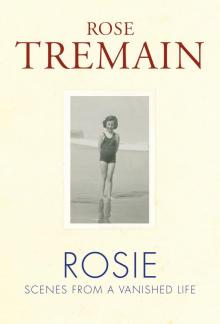 Rosie
Rosie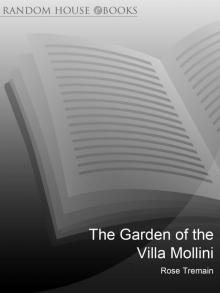 The Garden of the Villa Mollini
The Garden of the Villa Mollini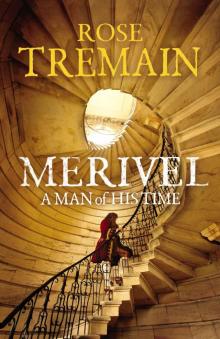 Merivel: A Man of His Time
Merivel: A Man of His Time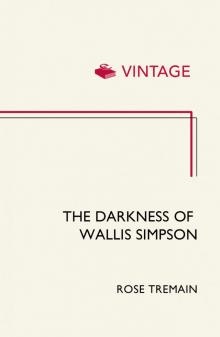 The Darkness of Wallis Simpson
The Darkness of Wallis Simpson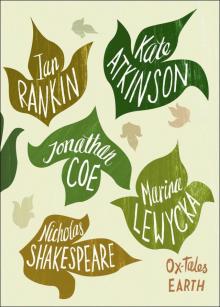 Earth
Earth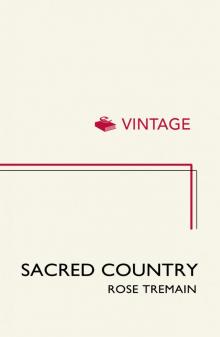 Sacred Country
Sacred Country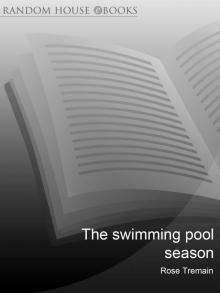 The Swimming Pool Season
The Swimming Pool Season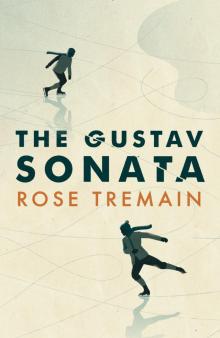 The Gustav Sonata
The Gustav Sonata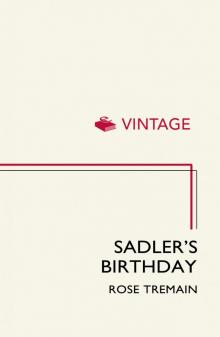 Sadler's Birthday
Sadler's Birthday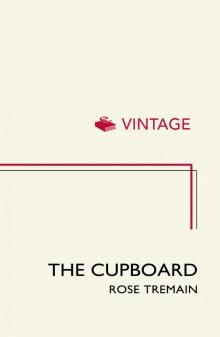 The Cupboard
The Cupboard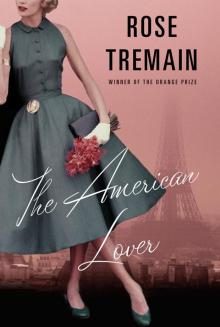 The American Lover
The American Lover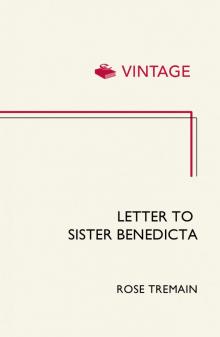 Letter to Sister Benedicta
Letter to Sister Benedicta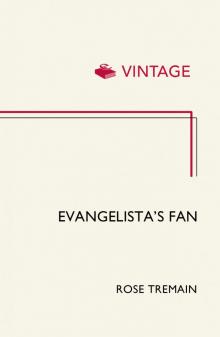 Evangelista's Fan
Evangelista's Fan Restoration
Restoration The Road Home
The Road Home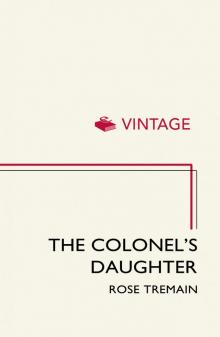 The Colonel's Daughter
The Colonel's Daughter The Way I Found Her
The Way I Found Her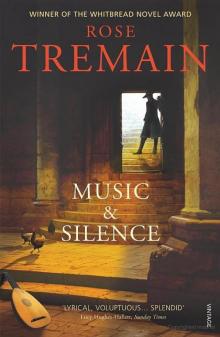 Music & Silence
Music & Silence